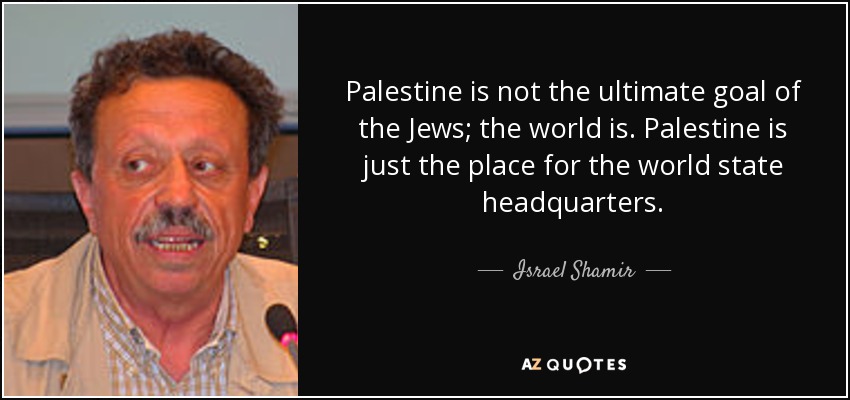
His story, however, is marked as the exemplary account that sheds light on the collective birth story as it prefigures the deliverance of the nation as a whole from bondage. He is one of many Hebrew babies persecuted by Pharaoh. Moses is a national leader whose history blends with the history of the nation. Unlike the patriarchal biographies that pertain to a distant past and flicker over the chasm of time, Moses' story is fashioned within the same historical setting. The analogy between the one and the multitude in this case is more immediate. On the question of birth, Moses' biography is of special importance. Fragments of the biographies of Isaac, of Jacob, the eponymous father, and even of Hagar, the Egyptian handmaid, whose affliction foreshadows the nation's enslavement in Egypt, are also linked in different ways to the nation's biography and take part in its construction. The heterogeneity of national imagination in the Bible depends on a variety of representatives. Abraham, however, is only the first exemplary figure.

We have already noticed the national dimension inscribed in Abraham's story: the fashioning of his departure from Ur as prefiguration of the nation's exodus. The nation's life story, in other words, is modeled in relation to the biographies of select characters. The fashioning of Israel as character, here as elsewhere, is inseparable from a complementary narrative strategy: the marking of individuals whose histories are paradigmatic. Let me suggest that the imagining of this dramatic event in Exodus is facilitated by the interweaving of two biographies: the story of the birth of Moses and that of the nation. Representing the birth of a nation is not a simple task. But then we discover that God's darker prophecy, in the covenant of the parts, is equally fulfilled: Israel is born in a prolonged exile against Pharaonic bondage. The descendants of Jacob, whose names are listed solemnly, multiply at an uncanny pace and turn into a "mighty" nation: the nation of the "children of Israel."1 "Israel" for the first time is not merely Jacob's second, elevated, name but rather a collective designation of a burgeoning community that "fills" the land. The opening verses of Exodus 1 make clear that God's reiterated promises to Abraham, Isaac, and Jacob-the grand national annunciation scenes of Genesis-are finally realized. The Book of Exodus provides an intriguingly complex representation of Israel's birth in keeping with the preliminary imaginings of the nation in Genesis. Every nation, however, has its own birth story, or birth stories. In fact, it is so resonant one tends to forget that nations are not born literally but rather are imagined in these terms.

I’ll end on this one, as this is not the main subject of this post, but in Mosiah (LDS 18:8) (RLDS 9:38-39) states “here are the waters of Mormon”, this is wonderful example of PaRDeS, four levels of meanings in the scriptures (see Bishops are JUDGEs of Israel for more regarding PaRDeS), the simplest level is very obvious that was the name of the water, a deeper level takes into account that Mormon actually means covenant and everyone is about to be baptized with water as a witness that they have entered into a covenant with God (regarding Mormon meaning covenant see Why Did Mormon Introduce Himself in 3 Nephi 5?, T HE MEANING OF THE NAME “MORMON”, What Does “Mormon” Mean, Anyways?, Mormon (word)).CHAPTER TWO Imagining the Birth of a Nation The metaphor of national birth is probably the most resonant anthropomorphic image in national biographies from antiquity to modern times. One thing we learn when studying about PaRDeS, see THE RULES OF PARDES Pardes (Jewish exegesis) and Beholding the Tree of Life: A Rabbinic Approach to the Book of Mormon, is that the deeper levels of meaning, or symbolic, and understanding do not contradict or negate the more surface levels, or literal, of understanding.Ī quote from The Holy Spirit and The Holy Ghost are the Same: The verse I just quoted, Mosiah (LDS 18:10) (RLDS 9:41), illustrates that we are to enter a covenant with God before we are baptized. I would have to disagree, as I do agree there is much symbolism in it, I have to say it is to be read literal also. You might be thinking I’m taking that statement to literally. Here is a quote from Bishops are JUDGEs of Israel about PaRDeS.

This quote relates as cows, which are kosher, has four stomaches, there are four layers of meaning is the scriptures know as PaRDeS. This is one thing that is symbolic with Kosher animals in chewing their cod, they are going over the word of God over and over again. I’ll give you one insight into this, chewing is symbolic of thinking over the word of God. Here is a quick quote I put in Encouragement for a Missionary


 0 kommentar(er)
0 kommentar(er)
